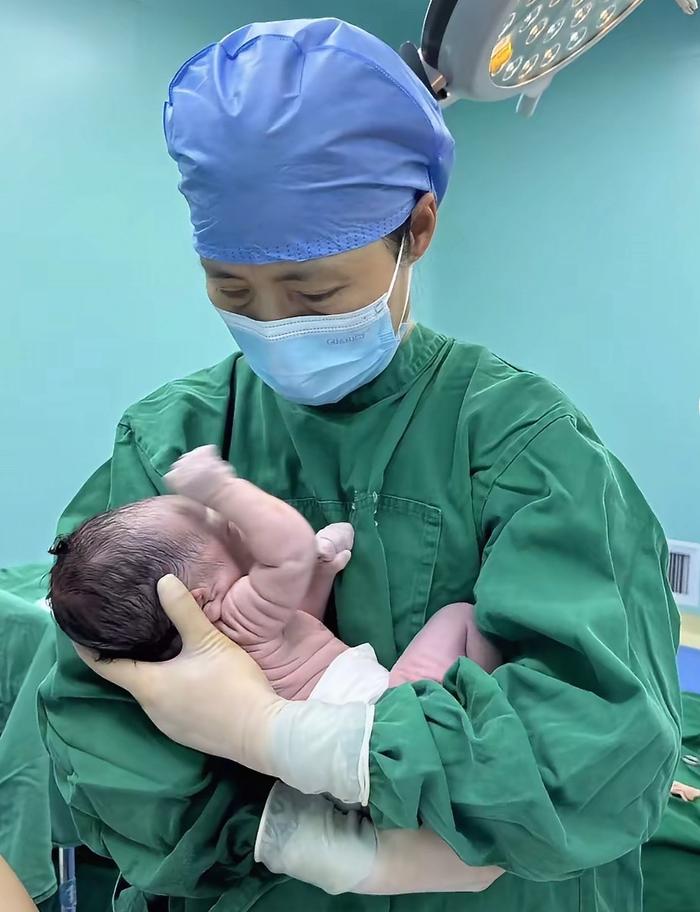She couldn’t take it anymore. Her family guessed that’s why she made such a resolute choice.
At 8:38 p.m. on August 1, Dr. Shao, a 57-year-old director of obstetrics and gynecology, fell from the sixth floor of Zhoukou Sixth People’s Hospital (hereinafter referred to as “Zhoukou Sixth Hospital”) where she worked, and ultimately died from severe injuries.
Her family revealed that before her death, Dr. Shao had been subjected to online attacks from parties involved in three medical disputes and their families. She left a suicide note detailing the incidents. After the incident, the Zhoukou Municipal Health Commission and relevant departments formed an investigation team, which is currently handling the matter.
In the memories of those around her, Dr. Shao was someone who deeply cared about her reputation and pursued perfection in her work. Over the past six months, the online attacks had caused her unbearable distress.
Before her death, she posted one last video. Some netizens saw it—Dr. Shao appeared with red eyes, not mentioning suicide, only saying: “I hope there will be no more cyberbullying in the world.” She also asked, “What do you think of me? Am I a particularly bad doctor?”
Those netizens recalled that many people in the comments defended her. But no one knows whether Dr. Shao saw those messages in her final moments.
The Last Day
On the afternoon of August 2, the day after the incident, Dr. Shao’s body was returned to her hometown in Xinyang. Family, friends, former neighbors, and mothers she had helped deliver traveled hundreds of kilometers overnight to attend her funeral. Some who couldn’t bring flowers bowed in front of her grave.
Later, her husband Zhang Li and their son went to Zhoukou Sixth Hospital to collect her belongings.
By then, the hospital had returned to normal. Three or four security guards stood at the entrance, keeping watch.
The main gate faced the outpatient building, where Dr. Shao had fallen. To the west was the general ward building, with the obstetrics department on the fifth floor. The corridor was quiet. In the pink doctor introduction panel, Dr. Shao’s photo was still placed first.
Zhang Li’s destination was at the end of this corridor—a small room where his wife had spent most of her time.
She actually had her own apartment, just a 10-minute drive from the hospital. But Dr. Shao rarely went back. Neighbors who lived below her years ago seldom saw her—after a long day at work, if there was no food at home, she would “drop by” for a meal. The next morning, before 7 a.m., she would rush back to the hospital.
This routine had lasted for over a decade. As the department head, her workload was heavy. Her husband and son lived in their hometown, and in recent years, only she and her mother were in Zhoukou. Sometimes when Zhang Li visited, he had to stay with her at the hospital. The room originally had bunk beds—Dr. Shao slept on the lower bunk while Zhang Li slept on the floor. Later, they replaced it with a sofa bed and gradually added a wardrobe, a refrigerator, a small pot, and storage boxes to keep her most-used items there.
“Come home to live,” Zhang Li urged her. Her response was always the same: “I can’t sleep at home. Leaving patients here makes me uneasy.”
On the last day of her life, Dr. Shao spent her time in this room.
At around 7 a.m. on August 1, she called her friend Wu Maimai.
The night before, they had discussed the cyberbullying. Her friend didn’t press for details, and Dr. Shao didn’t elaborate, only complaining that neither the hospital nor the police had made progress in handling the matter. Wu Maimai advised her to let it go: “If it’s too much, just go home and see your grandchildren. It’s not that the hospital can’t do without you—it’s you who can’t leave the hospital.”
That night, Dr. Shao also called her husband. As usual, they talked about family matters, and at the end, she seemed determined:

